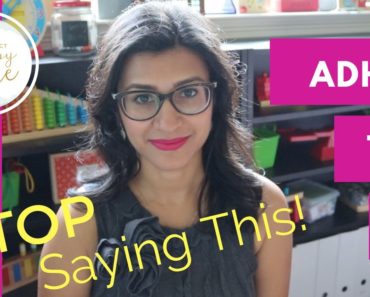Mood disorders, also known as affective disorders, are a class of mental health disorders that intensely affect how a child thinks and feels. It is normal for children to feel upset, sad, or irritable occasionally. However, children with mood disorders may have excessive mood changes lasting for a long time.
These mood changes can be severe and often do not go away on their own. If left untreated, mood disorders can interfere with a child’s academic performance and increase the risk of other mental health issues.
Read this post to learn about the types, symptoms, risk factors, causes, complications, diagnosis, and treatment for mood disorders in children.
Signs And Symptoms Of Mood Disorders In Children
The signs and symptoms of mood disorders may vary in each child based on their age and other individual factors. Children with mood disorders have an elevated mood or low mood that is more intense than usual for their age. These changes in moods may be frequent and often last a long period. The common signs and symptoms of mood disorders in children may include
- Lack of motivation or interest in previously enjoyed activities.
- Changes in sleep and eating patterns.
- Difficult behavior, causing trouble when with family and friends.
- Reduced school performance.
- Recurrent and severe temper outbursts and tantrums.
- Peer-relationship difficulties.
- Expressions of suicidal thoughts.
- Frequent physical complaints such as fatigue, stomach ache, and headache.
Children with the signs and symptoms of mood disorders require evaluation by pediatric psychiatrists, and immediate medical attention is recommended for children who express suicidal ideas and thoughts.
Types Of Mood Disorders In Children
Mood disorders in children can be of the following types.
- Dysthymia or persistent depressive disorder is a chronic form of depression. In this condition, children may have a depressed or irritable, low-grade mood lasting for at least one to two years.
- Major depression, also called major depressive disorder (MDD), is a mood disorder that interferes with everyday life. Feeling of hopelessness, sadness and lack of interest in activities for more than two weeks may suggest major depression.
- Mood disorders linked to other health conditions can trigger depression in children. Cancers, chronic illnesses, injuries, infections, etc., can cause mood disorders in some cases.
- Bipolar disorder is characterized by at least one episode of elevated mood (mania) and one episode of low mood (depression). Children can have noticeable and extreme mood changes during bipolar disorder.
- Substance-induced mood disorders can cause depression symptoms in some children. Certain forms of treatment, medications effects, and exposure to toxins can cause these mood changes in children. Drug abuse and alcoholism can also be a cause in some cases.
- Disruptive mood dysregulation disorder (DMDD) is only seen in children aged 7-18 years. This is a condition characterized by severe irritability and anger. Extreme tantrums and temper outbursts are symptoms of DMDD. Children with DMDD may damage something or hurt others or themselves in this
Some adolescent girls can develop premenstrual dysphoric disorder (PMDD), a severe form of premenstrual syndrome (PMS) that causes depressive symptoms, tension, and grouchiness before a menstrual period.
Causes And Risk Factors For Mood Disorders In Children
The exact causes of mood disorders in children are not known. However, chemical imbalances in the brain are believed to cause mood disorders such as depression. This imbalance can be triggered by unwanted life changes or stressful life events in some people. This can be responsible for various moods, such as positive and negative moods.
Affective (mood) disorders seen in families are considered to be multifactorial. Various environmental and genetic factors are involved in the development of this disorder.
The following factors may increase children’s risk for developing mood disorders.
- Divorce or separation of parents
- Failure to achieve desired academic grades and cope with pressure
- Breakup with girlfriend or boyfriend
- Severe financial struggles in the family
These stressful life events can cause extreme sadness, depression, and mood disorders, which are harder to manage in some children.
Complications Of Mood Disorders
The possible complications of mood disorders in children and teens may include
- Suicidal thoughts and suicide attempts
- Issues with peer and family relationships
- Disruptive behaviors such as being angry or aggressive towards others
Diagnosis Of Mood Disorders In Children
Pediatricians may conduct a physical examination to exclude any physical health problems or illnesses that may be causing the symptoms in children. They may also ask about their health history and family history to identify the problem.
Referrals to pediatric psychologists or pediatric psychiatrists are made for detailed evaluation and diagnosis of mood disorders. They may ask details of the symptoms and other questions to children, parents, caregivers, and teachers. Diagnosis is made if your child’s symptoms meet the recommended criteria for mood disorders appropriate for their age.
How To Prevent Mood Disorders In Children
There are no known ways to prevent mood disorders in children. However, early treatment is recommended to reduce the severity and complications. In addition, not involving children in parental conflicts and less pressure in performing academically may help some children avoid stressors.
Parents can do the following things to help their children manage mood disorders.
- Take part in family therapy.
- Do the regular follow-ups as per schedule.
- Talk to a healthcare provider and understand your child’s condition and improvements.
- Inform friends and family about their condition to avoid bullying.
- Seek school resources for your teen to meet educational needs as per the Americans with Disabilities Act (ADA) and Section 504 of the Civil Rights Act.
- Take suicidal tendencies in your teen seriously. Consider them as an emergency and call emergency support.
- Reach out for support from various groups and organizations.
Talking to your child about their problems and supporting them to overcome them can be beneficial. Understanding a child’s abilities and interests in academics and other activities is essential since forcing them to achieve certain goals can be stressful.
Treatment For Mood Disorders In Children
The treatment options for mood disorders may vary depending on the child’s age, symptoms, severity, and health status. The following treatment options are often recommended for mood disorders in children.
- Talk therapy or psychotherapy involves sessions with experts to help the child cope with their feelings, emotions, and stressors in their environment.
- Medications are often prescribed for severe symptoms and are usually combined with talk therapy. Antidepressants and mood-stabilizing medications are prescribed for children with mood disorders.
- Family therapy may help the family members understand and support the child with a mood disorder.
Doctors may recommend getting an individualized education plan (IEP) from the school administrators to ensure emotional and academic support for the child. In addition, you may do follow-up visits and therapy sessions as recommended.
Mood disorders in children are manageable with appropriate medications and psychotherapies. Seek psychiatric help as soon as you notice mood changes in your child. You may also support and encourage your child to overcome their problems. Furthermore, a good parent-child relationship could help reduce the risk of many emotional issues in children.


































